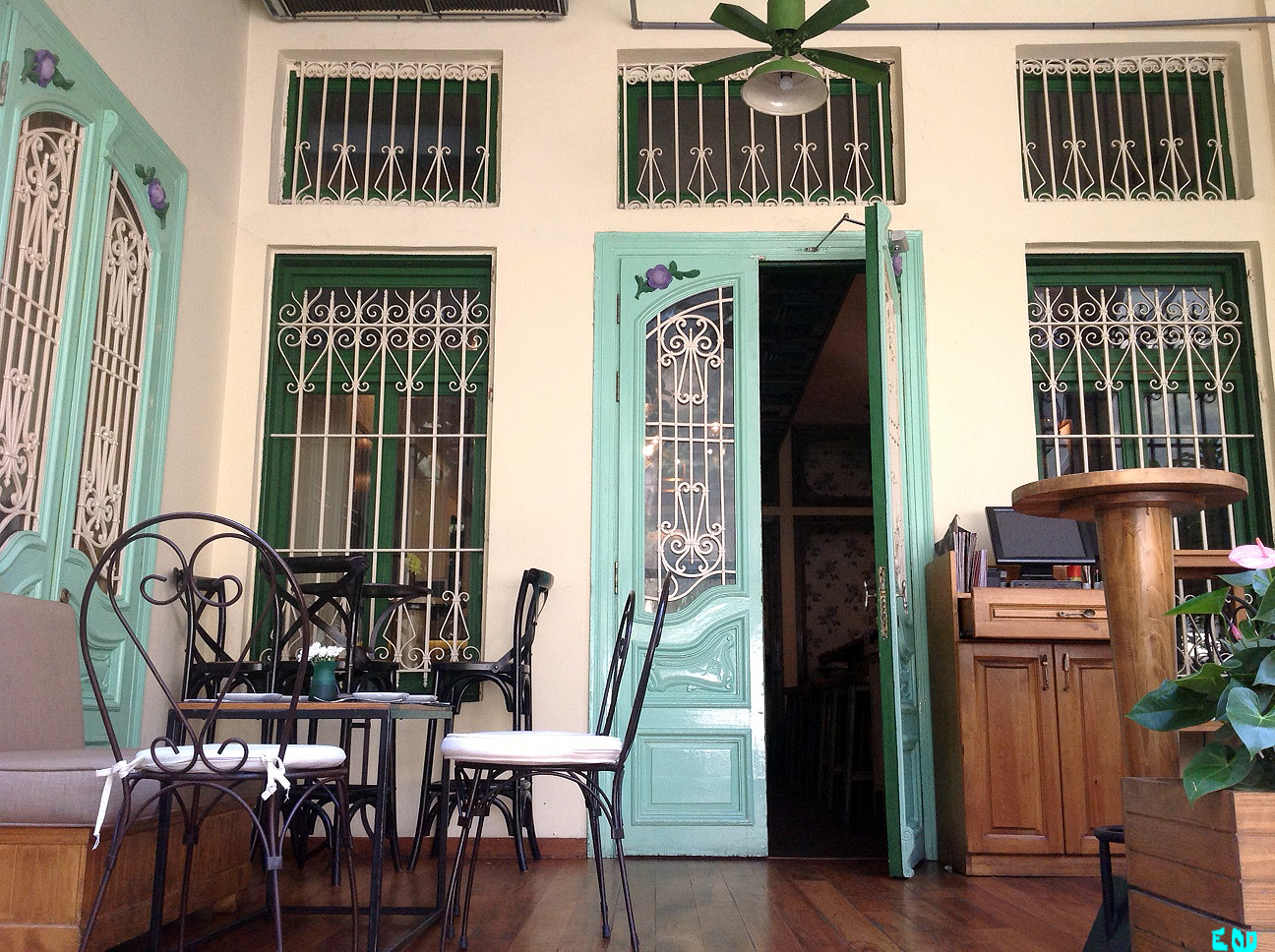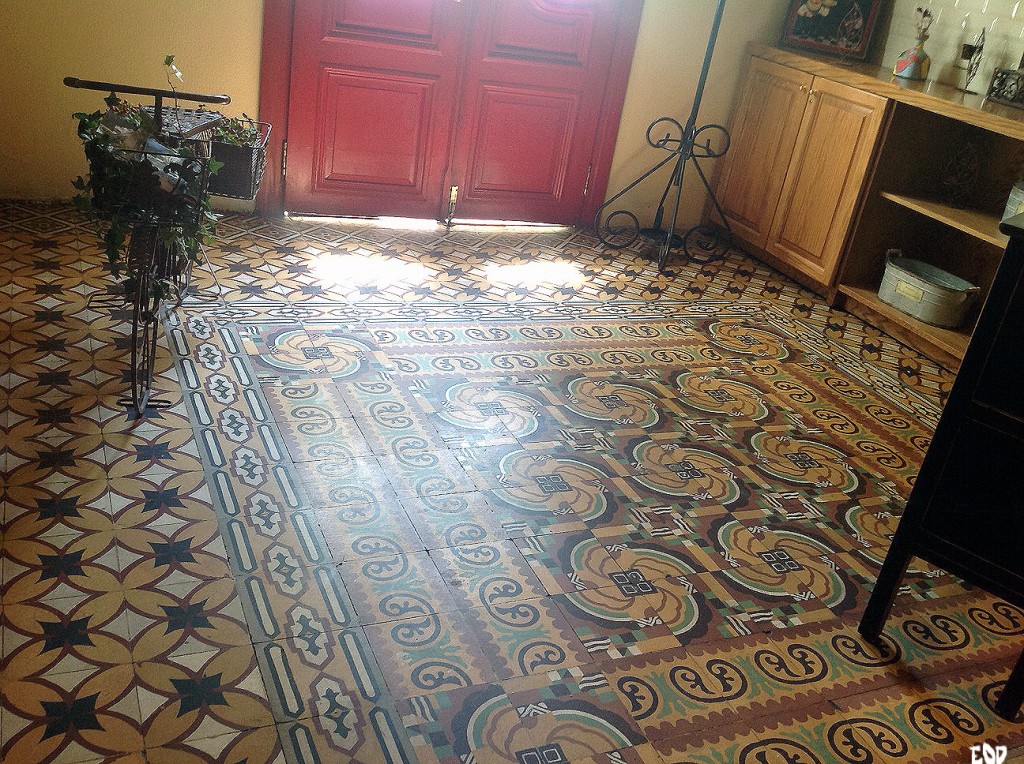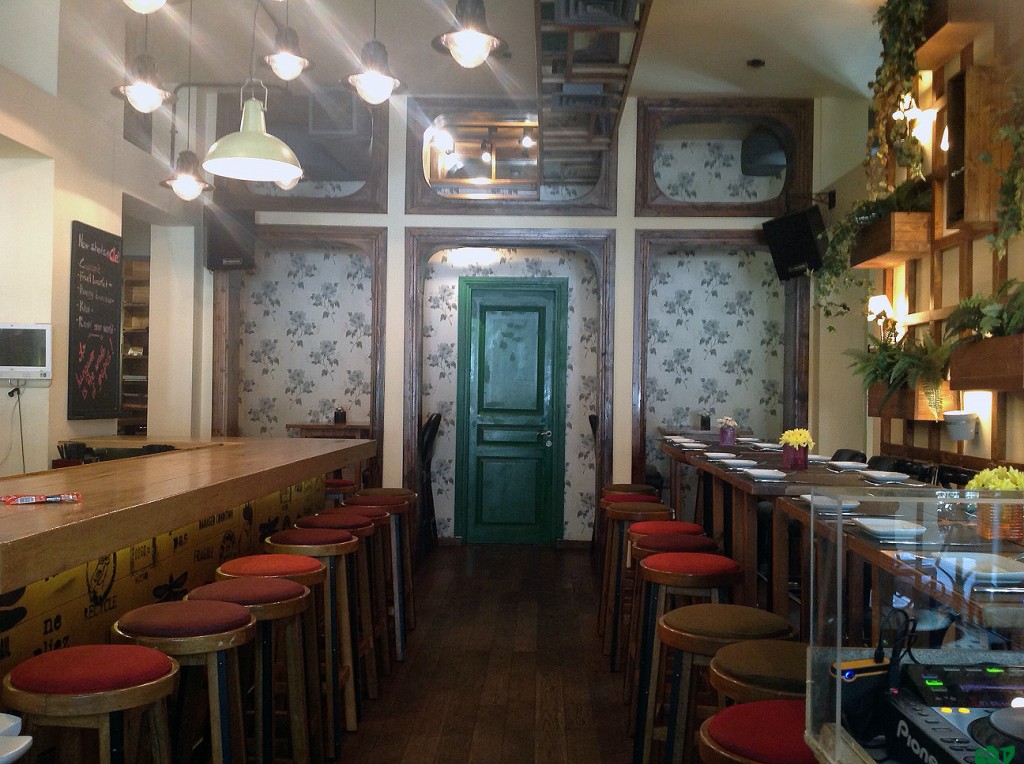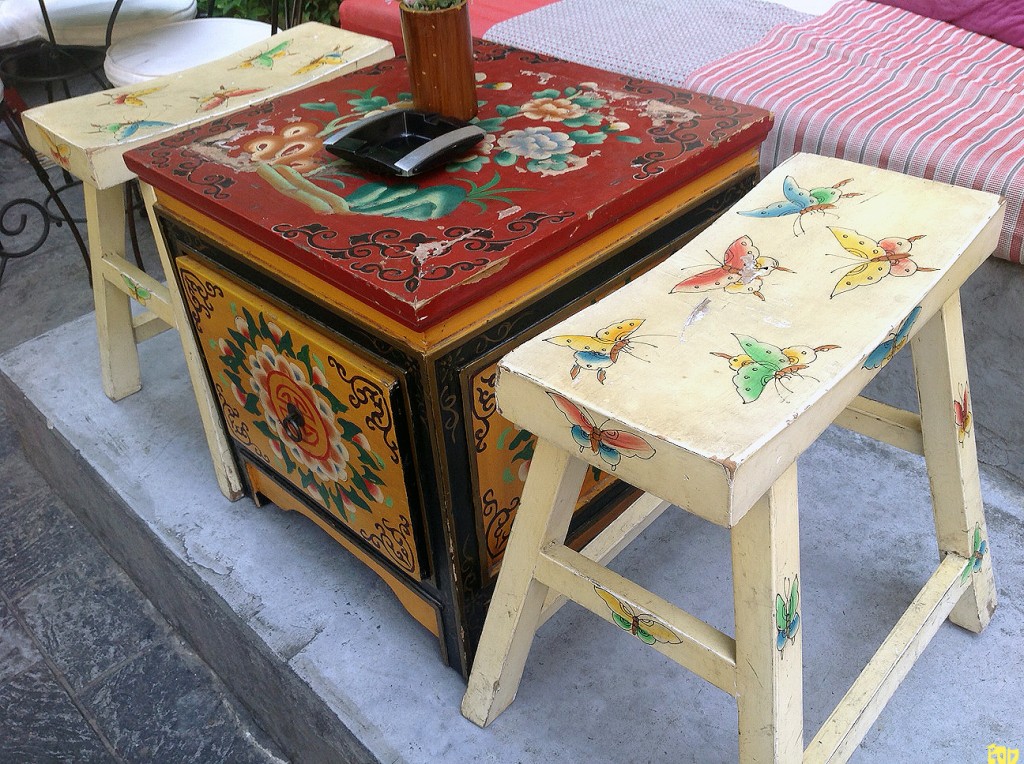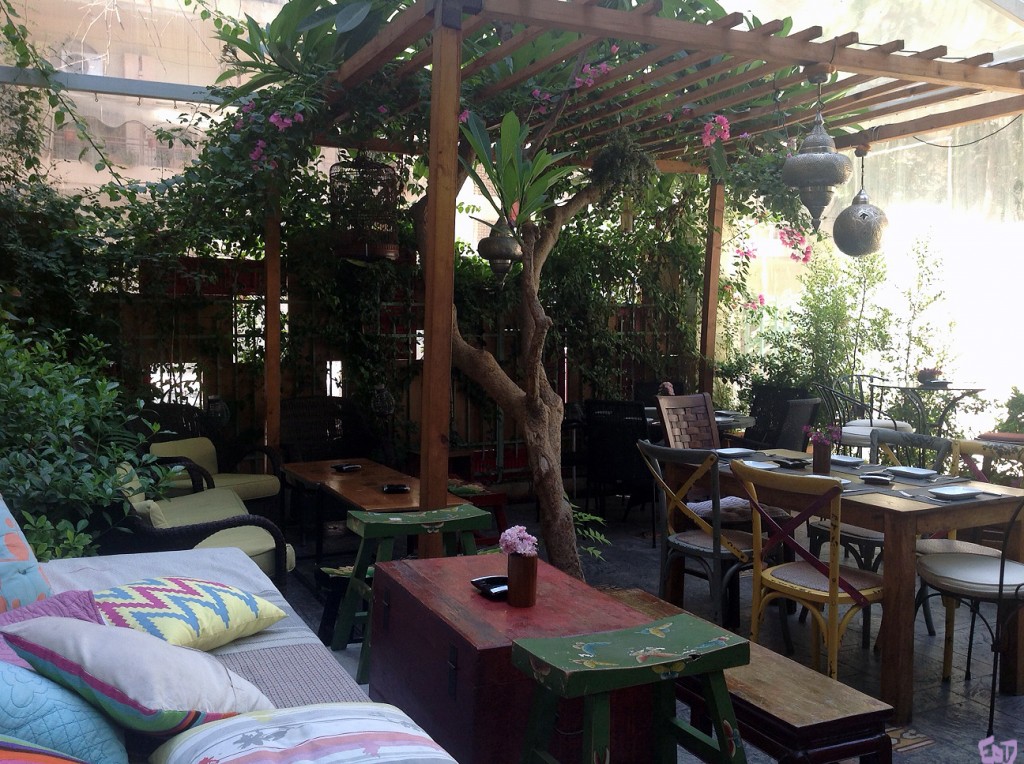It was a pleasant cafe, warm and clean and friendly, and I hung up my old water-proof on the coat rack to dry and put my worn and weathered felt hat on the rack above the bench and ordered a cafe au lait. The waiter brought it and I took out a notebook from the pocket of the coat and a pencil and started to write. — Ernest Hemingway
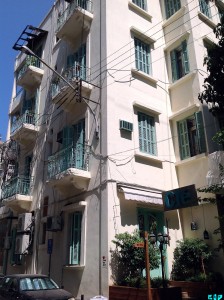
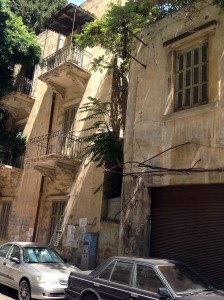 Like many writers, I do most of my writing in cafes. In Beirut, we have our pick of inspired cafes–where one can lounge and write all day. Yesterday, I took some photos at Clé–since I’m in love with their quiet garden out back. Like many cafes, restaurants, and dance clubs in Beirut, Clé is situated in a traditional Beiruti house. The white building to the left is Clé, while the other is its neighbor–which hasn’t been restored (yet?) like Clé.
Like many writers, I do most of my writing in cafes. In Beirut, we have our pick of inspired cafes–where one can lounge and write all day. Yesterday, I took some photos at Clé–since I’m in love with their quiet garden out back. Like many cafes, restaurants, and dance clubs in Beirut, Clé is situated in a traditional Beiruti house. The white building to the left is Clé, while the other is its neighbor–which hasn’t been restored (yet?) like Clé.
Tis pity wine should be so deleterious, for tea and coffee leave us much more serious. – Lord Byron
This colorful tile floor waits to greet Clé’s hungry patrons when they walk through the door. Some of my friends have floors like this running through their apartments–and they’re one of my favorite features of homes in Beirut. Before Clé was a restaurant, it served as a kindergarten–and before that, of course, a lovely residence. While some stop at the bar for a beer, others saddle up to the fireplace to sip a glass of wine. And the rest of us–saunter out back to the garden.
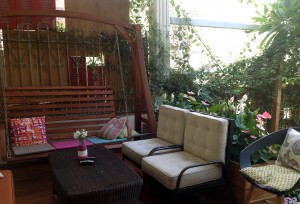 Of all the unchristian beverages that ever passed my lips, Turkish coffee is the worst. The cup is small, it is smeared with grounds; the coffee is black, thick, unsavory of smell, and execrable in taste. The bottom of the cup has a muddy sediment in it half an inch deep. This goes down your throat, and portions of it lodge by the way, and produce a tickling aggravation that keeps you barking and coughing for an hour. — Mark Twain
Of all the unchristian beverages that ever passed my lips, Turkish coffee is the worst. The cup is small, it is smeared with grounds; the coffee is black, thick, unsavory of smell, and execrable in taste. The bottom of the cup has a muddy sediment in it half an inch deep. This goes down your throat, and portions of it lodge by the way, and produce a tickling aggravation that keeps you barking and coughing for an hour. — Mark Twain
Apologies to Baba Twain, but I’d have to disagree. Whether I’m in Istanbul, Cairo or Beirut, one of my favorite drinks is a cup of Turkish/Arabic coffee. Every morning in Beirut, I brew a mean (tiny) cup at home–the way I was taught by a Sufi sheikh in Istanbul. The magic of this delicious sludge-bottomed coffee lies in breaking one of coffee’s cardinal rules: don’t boil–and reboil–the brew. But with Arabic coffee, that part is the most fun. When a smile of foam starts to form around the edge of the ibrik–the copper hand-held brewer–I remove the coffee from the flame (three times) to ignite its savory alchemy. And when I’ve timed it just right, the coffee rises in a flurry of bubbles on the third time (and usually spills over the lip on to the stove). Thankfully, whenever I need a second round of coffee at a cafe in Beirut, Arabic coffee is always on the menu.
I have measured out my life with coffee spoons. – T. S. Elliot
The chair in which a writer sits can influence how and what one is writing. In Clé’s garden, the furniture is an eclectic assortment of benches, swings, lounge chairs, and cushions–and rotating between them offers different perspectives of the house, street, and garden. Though some people swear by their burgers, others just go to sip on a frozen mint lemonade.
Tobacco, coffee, alcohol, hashish, prussic acid, strychnine, are weak dilutions; the surest poison is time.
— Ralph Waldo Emerson
Beirut is heaven for a writer–a picturesque paradise well-suited for using one poison to fight off another–time. And if there’s one thing everyone is hyper conscious of in Beirut–it’s time, and how short it can be. Perhaps the best part about being a writer in Beirut is: whenever writer’s block strikes, then that means it’s time for a dip in the sea.
